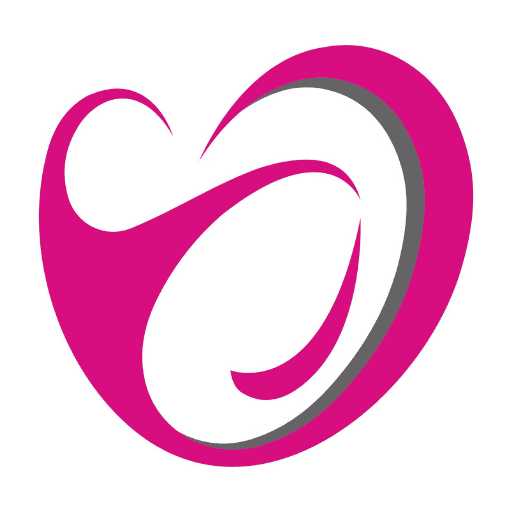Author: Dr.Sagnika Dash (Specialist Obstetrician and Gynaecologist – WELLKINS Medical Centre)
PCOS or Polycystic Ovarian Syndrome is considered as one of the commonest complaints seen in women of reproductive age. Its incidence varies from 2% o 26%. This variation can be attributed to many factors and can give an insight into the cause, effect and outcome of these women. Managing PCOS is mostly treating the symptoms along with lifestyle modifications which would help in reversing the risk factors, get a better control over symptoms and enable a healthy living.

What Causes Polycystic Ovarian Syndrome? Exploring the Underlying Factors
There are various hypothesis but none of them is based on larger studies.
The reason could be;
Genetic: If the condition runs in family, there is a higher possibility of it affecting you.
Environmental: Poor dietary choices having high calorie junk diet along with a lack of exercise.
Stress related: The effect of modern living and higher stress leads to poor lifestyle choices ultimately bringing about metabolic changes and hormonal disorders.
How to diagnose Polycystic Ovarian Syndrome?
Rotterdam criteria: 2 out of 3 factors being present in a woman while other causes of the presenting symptoms are ruled out
1. Polycystic ovaries (either 12 or more follicles or increased ovarian volume [> 10 cm3]
2. Oligo-ovulation or anovulation
3. Clinical and/or biochemical signs of hyperandrogenism various blood tests and scanning are needed if there is a specific symptom.
various blood tests and scanning are needed if there is a specific symptom.
What are the different symptoms seen with PCOS?
- Irregular cycles
- Male pattern of hair growth (Hyperandrogenemia)
- Infertility
- Skin changes: Acne , Acanthosis Nigricans(thick and dark skin at skin folds)
- Obesity
- Sleep apnea (Day time sleepiness)
- Low mood and fatigue
- Insulin resistance and Diabetes More likelihood of Heart diseases
- High blood pressure
- Cancer (Endometrial)
What Can I Expect During a Doctor’s Visit After Being Diagnosed with Polycystic Ovarian Syndrome?
The doctor would take history . Do the general examination to check for changes associated and then try to address the major concern for visit. Additionally, blood tests and imaging which is relevant to the complaints will be performed. A routine assessment of mental wellbeing by asking questions to rule out depression.
Managing PCOS is mostly treating the symptoms along with lifestyle modifications which would help in reversing the risk factors, get a better control over symptoms and enable a healthy living.
Tests needed to diagnose PCOS (Polycystic Ovarian Syndrome)
Women presenting with irregular cycles will need An ultrasound scan to have a look at the ovaries Blood levels of Androgen: male hormones if there isn’t sufficient evidence of clinical changes. Additional tests Glucose tests: 75 gram 2 hours Glucose challenge test to identify Glucose intolerance Insulin : If there is evidence of insulin resistance FSH and LH : As an adjunct to workup for infertility TSH : To rule out thyroid disorders as a cause for changes seen with PCOS
Lipid profile: Risk of cardiac effects Liver function and Renal function tests Transvaginal sonography: to identify polycystic ovaries and assess endometrial thickness in those presenting with heavy menstrual bleeding
What are the treatment options of Polycystic Ovarian Syndrome?
The treatment for PCOS is done by addressing the symptoms along with optimizing lifestyle factors. Depending on the symptom , the following treatment can be offered;
Irregular cycles:
Pills which contains cyproterone acetate is a good option as it is anti-androgenic and can ensure regular cycles. Giving a few cycles of pills along with lifestyle changes will set the cycles regular in most of the women. For those who are additionally planning for a pregnancy will not be offered the contraceptive pill. Before prescribing the pills , one needs to understand the risk factors and choose an appropriate pill taking into account various risk factors in the history, examination or blood parameter.
Male pattern of hair growth (Hyperandrogenemia):
If associated with high male hormones in the blood, an Anti-androgen will help in reducing the hair growth. Coarse dark hair may not respond well to the medicines and will need mechanical methods like waxing or shaving to improve the appearance. Laser and Electrolysis are other methods of hair removal that can be used to ensure permanent hair removal.
Infertility:
A thorough investigation for infertility is needed to begin any treatment for PCOS. Regularizing the cycles and ensuring the development of follicles (eggs) is an important factor to be considered along with addressing the safety of ovulation induction drugs. Letrozole is a novel drug for induing ovulation induction and is associated with single egg development. prior to starting a treatment, it is always advisable to achieve a moderate degree of weight loss. A high LH is often associated with PCOS and sometimes might need some surgical intervention which is rare but an option to consider.
Skin changes:
Acne , Acanthosis Nigricans(thick and dark skin at skin folds) Development of acne is mostly due to high levels of circulating male hormones while Acanthosis nigricans is due to insulin resistance. Identifying the cause of the skin changes and addressing them is essential in treatment of such conditions. An anti androgen , local creams , antibiotics may help with severe Acne. For insulin resistance, Insulin sensitisers such as Metformin are used as a first line agent.
Obesity:
Depending on the grade of obesity, there are various recommendations. While those above 40 kg/M2 will benefit from bariatric surgeries , those with lower BMI can opt for oral tablets to reduce weight. Those with Grade 1 Obesity can initiate lifestyle modifications and expect dramatic results including reversal of the ultrasound features.
Sleep apnea (Day time sleepiness):
Addressing the cause of sleep apnea will help in resolution of the same. This condition is associated with obesity and happens when there is airway obstruction during sleeping which commonly presents with snoring. Reduction of body weight and changing sleeping posture may have benefits.
Low mood and fatigue:
A negative body image along with various health issues lead to development of depression and low mood among women suffering from PCOS. Taking help from professionals and having a CBT (Cognitive behavioral Therapy) would be sufficient for majority of women while a few may need additional help with a short course of Anti-depressants which should be prescribes after a consultation with a mental health expert.
Insulin resistance and Diabetes:
Insulin sensitizer and glucose lowering drugs can help in reducing the blood sugar levels and prevent the onset of TYPE 2 Diabetes.
More likelihood of Heart diseases:
Unlike the general population , Women with PCOS will not follow the usual risk stratification for a metabolic syndrome. As this condition is associated with diabetes, abnormal lipid and high blood pressure, it is important to educate the patient about the risk of developing cardiac condition. The risk can be reduced by improvising the risk factors.
High blood pressure:
Medicines for reducing blood pressure are prescribed keeping in mind the various side effects and safety profile in case of an unplanned pregnancy as most of the women with PCOS are in the reproductive age group.
Cancer (Endometrial):
This is a rare long term complication of PCOS. Surveillance with ultrasound and a biopsy of the endometrium if there is any heavy bleeding will help in identification of pre-cancerous conditions. The risk factors for development of cancer of the womb are high blood pressure, diabetes and obesity. If these factors are optimised, the chances of development of a cancer is unlikely.









